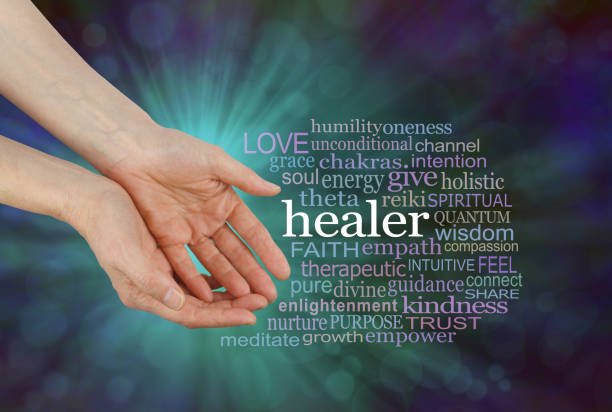
Lessons from My Journey
As an empath, I have always felt deeply connected to the emotions and energies of those around me. It’s not just an awareness; it’s an immersion. I could walk into a room and feel the unspoken tension, joy, or sorrow lingering in the air. Over time, I began to believe that my sensitivity was a gift meant to alleviate the suffering of others, to take their pain and make it my own. After all, if I could feel it so vividly, surely I could help them by absorbing it.
But as I continued on my journey, it became more of a curse untiI I discovered a deeper truth, one that redefined my role as an empath and changed the way I approached both my own growth and the healing of others.
What Does It Mean to Be an Empath?
To be an empath is to feel the world more intensely. It’s the ability to sense the emotions, thoughts, and energies of others as if they were your own. This heightened sensitivity often makes empaths natural caregivers, drawn to healing and helping those in pain. However, it also comes with its challenges:
- Emotional Overload: Absorbing others’ emotions can leave us feeling drained or overwhelmed.
- Blurring Boundaries: The line between our emotions and others’ can become so thin that we lose sight of ourselves.
- The Savior Complex: The desire to rescue others from their pain often leads to enabling behaviors that hinder true growth.
For years, I thought my role as an empath was to “save” people from their suffering. I believed that if I could take their pain, they would be free. But this approach only left me depleted and, worse, robbed them of the opportunity to learn and grow from their experiences.
The Turning Point: Mastering Empathy
The moment of realization came when I understood that enabling someone’s suffering by taking it away doesn’t serve their highest good. Pain, as much as we resist it, is often a powerful teacher. When we remove it prematurely, we interfere with its lessons.
I began to ask myself:
- What if their pain is part of their soul’s growth?
- What if my interference is delaying their healing journey?
The answers were humbling. It wasn’t my job to save others from their pain, it was my job to hold space for them, to trust in their ability to rise and heal, and to offer guidance when they were ready to take that step.
The True Way of the Empath
With this understanding, I came to embrace a new approach, one that I now live by:
I should never lament the pain you experience, nor should I feel sorry for your suffering. The right approach is to wait in Love for the Truth of your being, and offer assistance when you are willing to grow, to heal, to forgive, to expand, and to enlighten your being. Else, without focused will, there can be no healing…
While this may sound rough (actually maybe even more for the untrained empath) at first, this perspective shifts the role of the empath from a savior to a guide:
- No Pity, Only Love: Feeling sorry for someone diminishes their power. Instead, I choose to see them in their highest potential, holding a space of unconditional love and trust.
- Empowering Growth: Pain and suffering are not enemies; they are catalysts for transformation. I trust that those I encounter are capable of overcoming their challenges when they are ready.
- Holding Space: I do not carry their burdens, but I walk beside them, offering support when they choose to take responsibility for their healing.
How This Approach Transforms Relationships
This shift in perspective not only changed how I relate to others but also deepened my own sense of peace and purpose. I no longer feel overwhelmed by the weight of others’ emotions because I am not trying to fix them. Instead, I focus on being present, compassionate, and supportive.
Here’s what I’ve learned:
- Boundaries Are Essential: Holding space doesn’t mean absorbing energy. Clear boundaries protect both the empath and the person they are helping.
- Compassion Over Control: Trying to fix or control someone’s journey is a reflection of our own fears. True compassion trusts their ability to heal in their own time.
- Self-Awareness Is Key: The more I know myself, the better I can discern when to step in and when to step back.
The Empowered Empath
Being an empath is not about suffering for others—it’s about standing strong in love and truth. It’s about trusting the divine timing of each person’s journey and knowing that pain, when faced with courage and love, leads to growth and transformation.
To all the empaths reading this: Your gift is not your ability to feel others’ pain; it is your ability to hold space for their light. Trust in their capacity to rise, and remember that your role is not to carry their burdens but to shine a light on the path when they are ready to walk it.
If I could go back and tell my younger self one thing, it would be this: You don’t need to save the world by carrying its pain. Your gift lies in your ability to love unconditionally, to trust in others’ growth, and to honor your own boundaries.
As an empath, you are not here to fix, but to inspire. You are not here to absorb, but to radiate. And most importantly, you are not here to diminish your own light but to shine it so brightly that it illuminates the truth in others.
Affirmation:
“I honor my gift as an empath. I hold space for others with love and trust, knowing that their journey is theirs to walk. I release the need to save and embrace the power of unconditional love.”
Let’s Keep the Growth Going
You’ve come this far for a reason. Stay connected and receive insights that meet you where you are—right in your inbox.
- Join our Newsletter -
Share:
Categories
Popular Posts
Don’t Fall in Love. Rise in Love.
Tags
Useful Links
Quick Menu
Contact Us
- +971585541780
- info@coach-g.com
- Al Murjan tower, Al Marsa Street Dubai Marina




